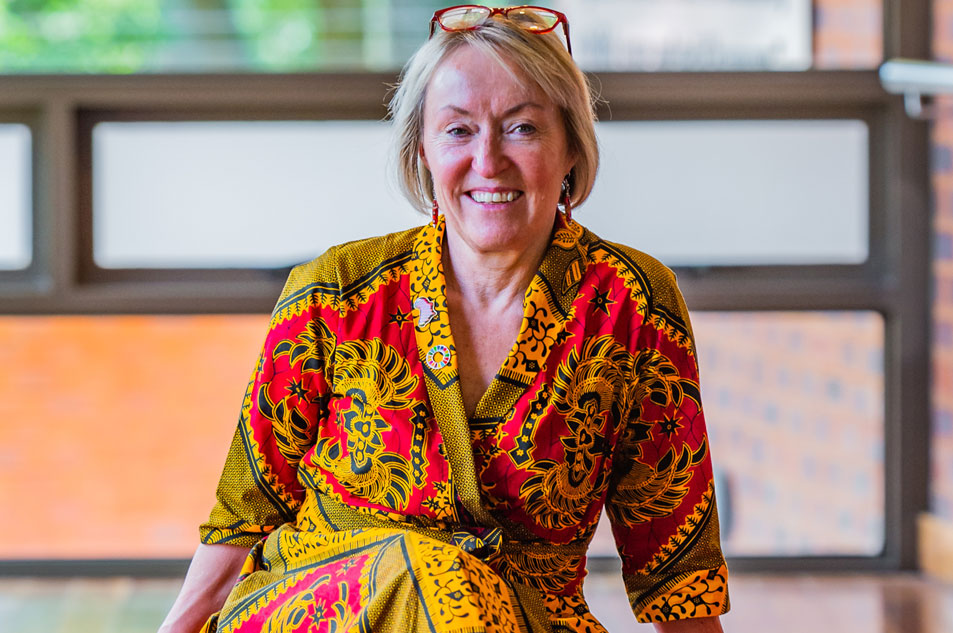Africa’s Business Leaders Share Ideas on Solving the Continent’s Biggest Social Challenges
Business leaders from across Africa will seek solutions to some of the continent’s most challenging social issues at the Africa Shared Value Leadership Summit in Kigali, Rwanda from the 4th to the 5th of June 2020. The Summit, which will draw leaders from some of Africa’s biggest companies as well as decision-makers from government and civil society, provides a platform for business to collaborate on social upliftment of the continent, as well as to share insights about the most effective ways for companies to solve social challenges as a core part of their business operations.

The Shared Value Africa Initiative (SVAI) brings businesses and business communities from across Africa together with a common purpose: build ecosystems to drive the growth of the African economy; shift Africa from being the poorest continent to become the most economically viable; and bring about change at scale to the benefit not only business but also society and the environment. Its main objective is to build one of Africa’s most powerful business networks. The SVAI enables people to partner with and learn from others to sustainably create both economic and societal value through their Shared Value strategy, as well as how to motivate others to make the shift to Shared Value, further influencing change at scale.
Read also : Would The Coronavirus Epidemic Affect Fund Raising For African Startups In 2020?
The decision to hold the 2020 Summit in Rwanda gives delegates an opportunity to learn from the economic and social developments in the country over the last two decades, with the summit’s content aligned with selected priority areas of Rwanda’s National Strategy for Transformation (NST1). “The solution-seeking sessions enable attendees delegates to discuss specific regional challenges and collectively contribute and suggest possible solutions,” says Shared Value Africa Initiative CEO Tiekie Barnard. “This provides a significant opportunity for delegates to learn and form networks across the continent.”
In line with the Summit’s partnership with Africa Leadership University (ALU), these sessions will be facilitated by students and alumni of ALU School of Business MBA course, with ALU faculty members compiling reportage of these sessions. Undergraduate students will be ambassadors throughout the Summit, while African Leadership Group founder Fred Swaniker will also give a keynote address at the Summit. The solution-seeking sessions allow some of the greatest minds in Africa to grapple with complex issues such as how Africa connects across borders to make the continent the global tourist destination, what is required to create food security in Africa and outbreaks, pandemics and the future of Africa’s health. Other issues they will look into are how to track the societal benefit of the AfCFTA, building shared value ecosystems and exchanges in conversation regarding entrepreneurship and Public-Private Partnerships.
“The Shared Value business model, developed by Harvard Business School’s Prof Michael Porter and Mark Kramer, is practised by an increasing number of businesses across the world,” says Shared Value Africa Initiative Founder and CEO Tiekie Barnard. “This provides opportunities to build business initiatives around solving social problems at scale, contributing to achieving the United Nations Sustainable Development Goals on the continent.”
Read also : Ghana Commends African Development Bank for Support
The Summit has become a platform for Africa’s business thought leaders to exchange insights and share their experiences implementing the Shared Value business model in the diverse African context. The event connects speakers from industries ranging from telecommunications to healthcare, manufacturing and mining.
Discussions enable participants new to Shared Value thinking to learn how to embed shared value into core strategy of the business, and how to develop shared value opportunities to address social and environmental issues. As well as the solution-seeking sessions, the Summit will also feature African leaders sharing how their businesses create economic value and value for society, as well as presentations from various industry sectors.
The Summit, which took place 23-24 May 2019 in Nairobi, was attended by more than 350 business executives per day over two days, with more than 18 countries represented. The Summit also aims to encourage business to contribute to achieving the United Nations Sustainable Development Goals on the continent. “As with previous years, the UN Sustainable Development Goals will be a theme throughout at the Summit as a guide to the business leaders to demonstrate how business can contribute to achieving the goals and to addressing e social challenges, a core part of their operations” says Barnard.
Read also : Dangote Foundation Donates Towards Fight Against Coronavirus in Nigeria
The Shared Value Africa Initiative (SVAI), is a pan-African organisation and the custodian of the global Shared Value movement on our continent. The SVAI is the regional partner of the global Shared Value Initiative started by economists Prof Michael Porter and Mark Kramer from Harvard Business School. Prof Porter is a current member of the Rwandan Presidential Advisory Council.
Since its inception, the SVAI has been working to establish a strong footprint across the continent, beginning in South Africa. As East Africa is home to some of the fastest-growing economies on the globe, the SVAI believes that this region has the potential to catalyse a business revolution across the continent. Successful economies, such as Kenya (hosts of the 2019 Summit) and Rwanda, influence and motivate others to follow in their footsteps – and, by becoming Shared Value hubs, can influence positive change on our continent.
Kelechi Deca

Kelechi Deca has over two decades of media experience, he has traveled to over 77 countries reporting on multilateral development institutions, international business, trade, travels, culture, and diplomacy. He is also a petrol head with in-depth knowledge of automobiles and the auto industry






